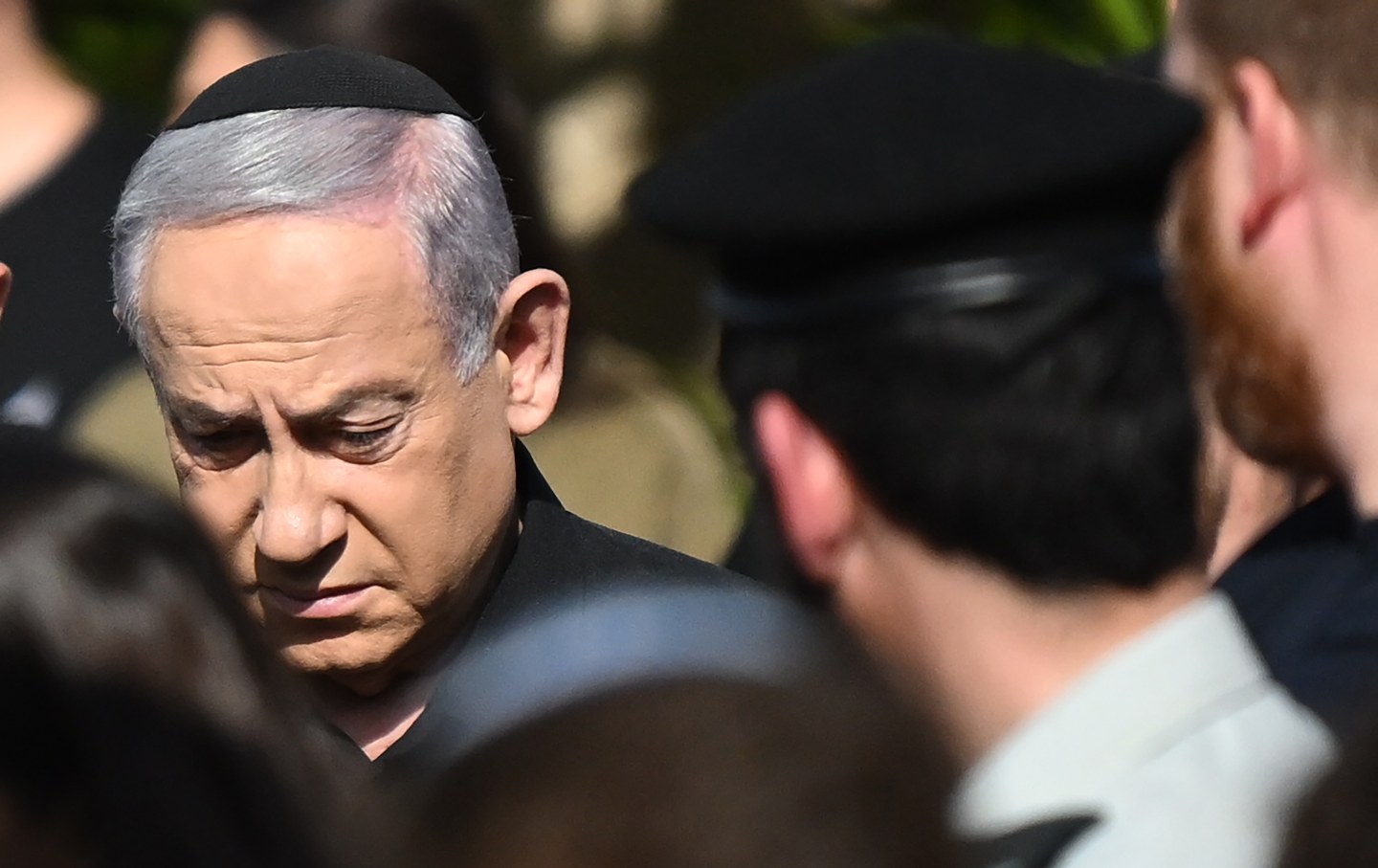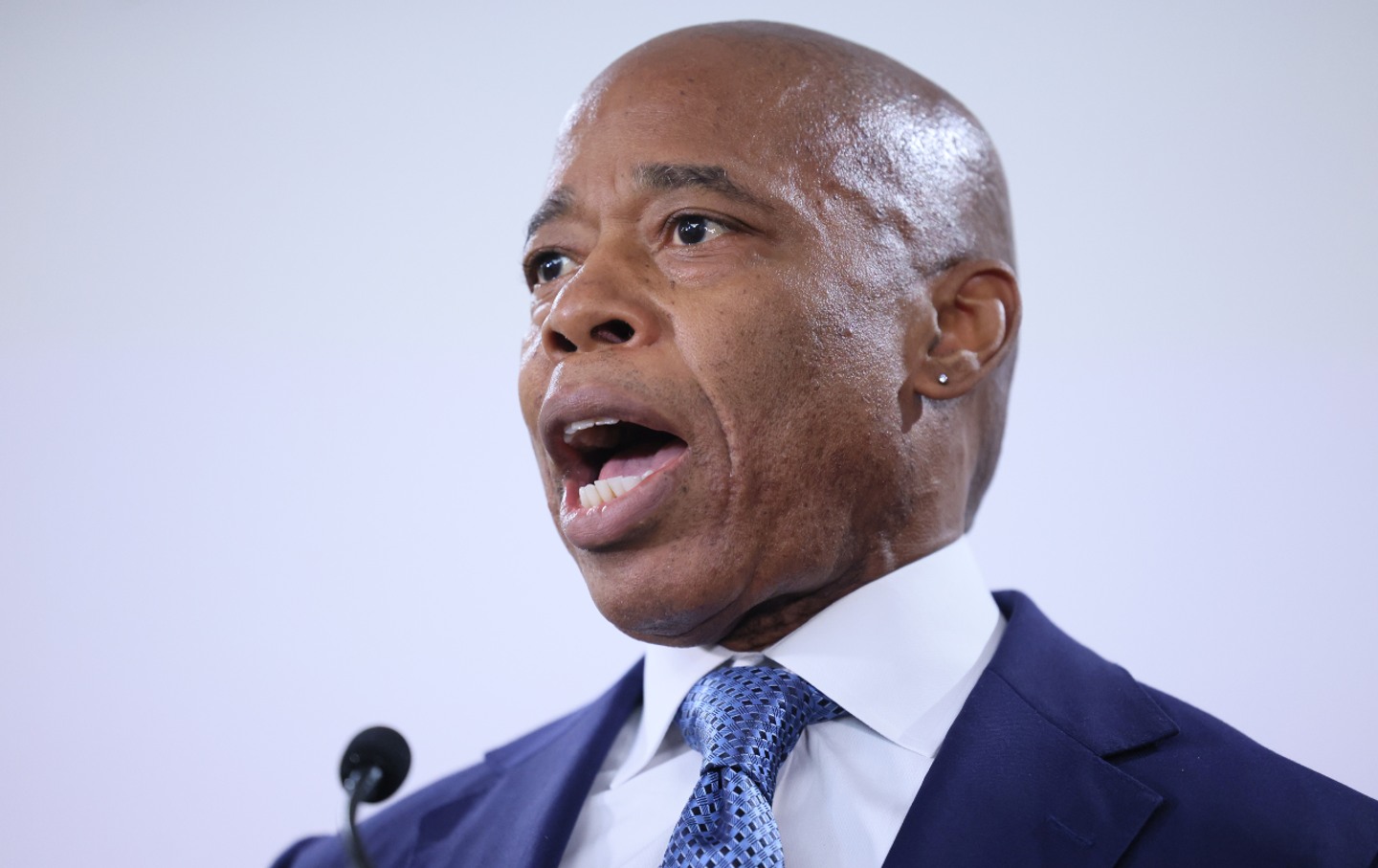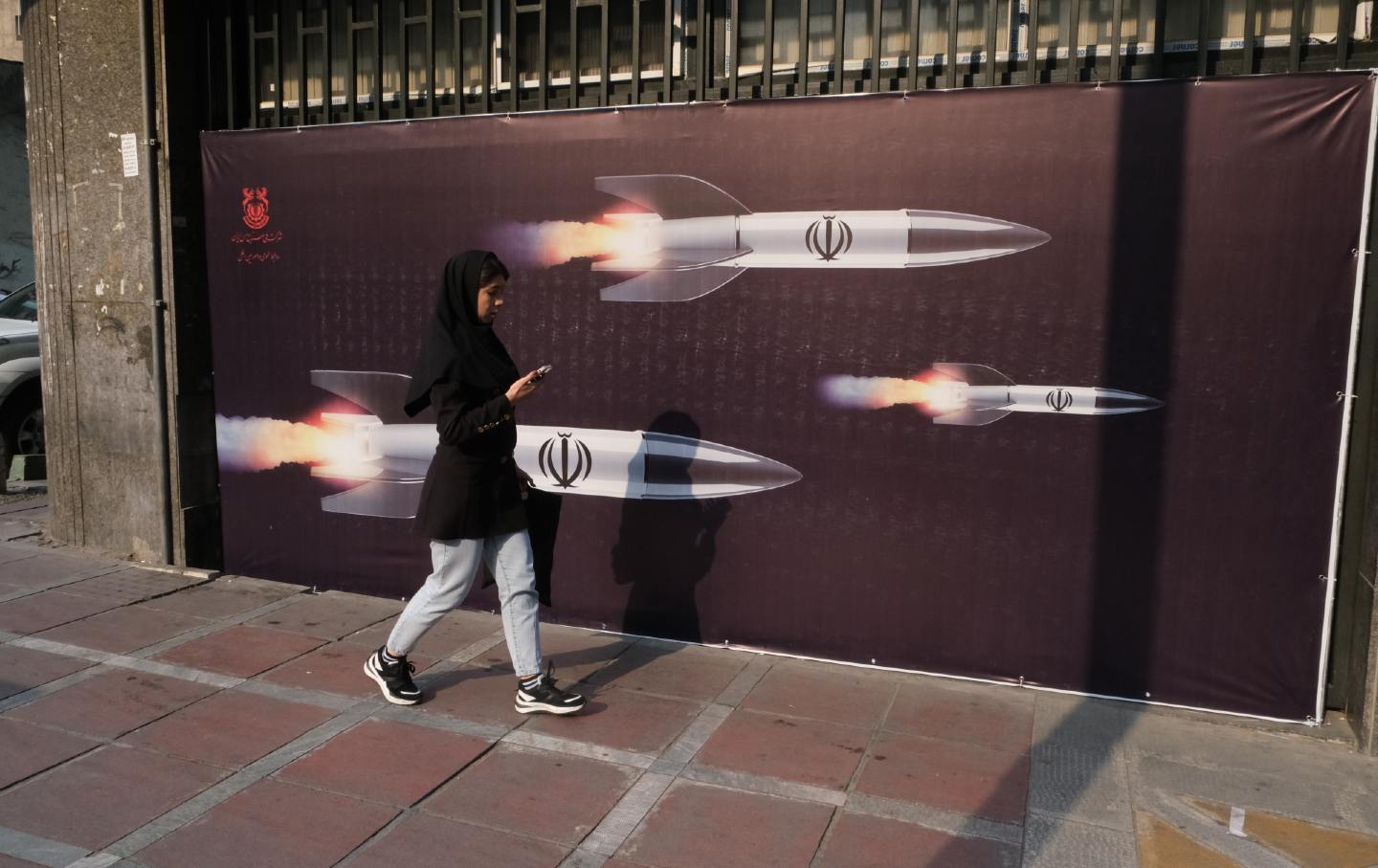Why Netanyahu Bolstered Hamas
The Israeli prime minister followed a decades-old divide-and-rule strategy that fuels endless war.

Wars help hide political scandals. The ongoing Israeli assault on Gaza has been singularly useful to prime minister Benjamin Netanyahu in sidelining popular anger at his government’s numerous failings. The massive protests against Netanyahu’s authoritarian attempts to weaken the courts dwindled after Hamas October 7 attack, although there are signs they are resuming force. The intelligence failures that allowed the October 7 attack to take place have received some press attention—but have yet to be the focus of sustained political ire.
The same is true of Netanyahu’s longstanding policy of bolstering Hamas rule in Gaza, including encouraging Israel’s de facto ally Qatar to finance the terrorist organization. While the much-respected Israeli newspaper Haaretz has covered this issue, it has been largely ignored by the international press.
On Sunday, The New York Times gave new prominence to the long-standing Netanyahu-Hamas connection in a detailed and lengthy report. According to the newspaper:
Just weeks before Hamas launched the deadly Oct. 7 attacks on Israel, the head of Mossad arrived in Doha, Qatar, for a meeting with Qatari officials.
For years, the Qatari government had been sending millions of dollars a month into the Gaza Strip—money that helped prop up the Hamas government there. Prime Minister Benjamin Netanyahu of Israel not only tolerated those payments, he had encouraged them.
According to the Times, Israeli intelligence agents traveled into Gaza with a Qatari official carrying suitcases filled with cash to disperse money. Retired Israeli general Shlomo Brom described the logic of Netanyahu’s position: “One effective way to prevent a two-state solution is to divide between the Gaza Strip and the West Bank.” If the extremist Hamas ruled Gaza, then the Palestinian Authority—a compromised comprador government with a tenuous hold on the West Bank—would be further weakened. This, according to Brom, would allow Netanyahu to say, “I have no partner.”
In 2015, Bezalel Smotrich, currently the finance minister in Netanyahu’s government, summed up the strategy by stating, “The Palestinian Authority is a burden. Hamas is an asset.”
According to the Times, “As far back as December 2012, Mr. Netanyahu told the prominent Israeli journalist Dan Margalit that it was important to keep Hamas strong, as a counterweight to the Palestinian Authority in the West Bank. Mr. Margalit, in an interview, said that Mr. Netanyahu told him that having two strong rivals, including Hamas, would lessen pressure on him to negotiate toward a Palestinian state.” Netanyahu denies this conversation.
Although informative, the Times article suffers from the historical amnesia and political myopia of the newspaper’s coverage of the conflict. The funding of Hamas is presented as merely a problem for Israel—as if the divide-and-rule strategy didn’t have dire consequences for Palestinians. The main political critic of the policy quoted is the far-right politician Avigdor Lieberman, a former Netanyahu ally who advocated a war to destroy Hamas. To judge by the Times, the acceptable spectrum of political policy runs from Lieberman to Netanyahu. The article presents the policy as the fault of Netanyahu alone and ignores the ample historical record that the current prime minister was following a cynical strategy that is decades old.
In his 2006 study The Iron Cage, historian Rashid Khalidi described Hamas as “the protégés of the Israeli occupation” and part of a divide-and-rule strategy shared by Israel and its superpower patron, the United States. According to Khalidi, the British empire provided a model for
the decades-long U.S. fostering of the Muslim Brotherhood and the Islamically oriented groups throughout the Middle East as counterweights to what were perceived as radical, nationalist, anti-American forces. Conservative Arab regimes allied with the United States, like those of Jordan and Saudi Arabia, followed a similar policy. For well over two decades after the occupation of the West Bank and Gaza in 1967, Israel did much the same thing with the Palestinian branch of the Muslim Brotherhood and its offshoot Hamas in Gaza as a counterweight to the nationalist Palestinian Liberation Organization (PLO). This reached the point where the Israeli military occupation encouraged Brotherhood thugs to intimidate PLO supporters.
A 2006 article from United Press International reporter Richard Sale noted, “Israel and Hamas may currently be locked in deadly combat, but, according to several current and former U.S. intelligence officials, beginning in the late 1970s, Tel Aviv gave direct and indirect financial aid to Hamas over a period of years.” The article quoted a former CIA official as saying Israel financed Hamas, as “a direct attempt to divide and dilute support for a strong, secular PLO by using a competing religious alternative.”
Netanyahu deserves no credit for political innovation. Not only is the policy of supporting Hamas decades old; it has roots in the tactics of imperial domination developed by the British Empire (and later taken up by the United States). There’s a direct line of continuity leading from imperial regimes’ fostering of conservative governments and religiously zealous factions to the current Israel/Qatar/Hamas connection.
Nor is this policy the only relic of the past in this conflict. The very methods Israel is using to fight this war—bombings where civilians are a far larger percentage of the killed than combatants—is also a tactic dating back to the Fascist terror bombing of Guernica during the Spanish Civil War and the mass bombings by both sides during World War II. It, too, will bolster Hamas even more. As University of Chicago political scientist Robert A. Pape noted in Foreign Affairs:
Mass civilian punishment has not convinced Gaza’s residents to stop supporting Hamas. To the contrary, it has only heightened resentment among Palestinians. Nor has the campaign succeeded in dismantling the group ostensibly being targeted. Fifty-plus days of war show that while Israel can demolish Gaza, it cannot destroy Hamas. In fact, the group may be stronger now than it was before.
Writing in The Nation, Tony Karon and Daniel Levy make the parallel point that because insurgent wars are won politically, Israel’s brutal policy of collective punishment is leading to victory by Hamas.
Given this history, it’s clear that Netanyahu and Hamas are both merely symptoms of a deeper problem. The real source of endless war is the Israeli state’s long-standing goal of imperial domination over the Palestinians, toward which end the propping up of Hamas is merely a means. The only way to solve this problem is to realize that the goal of domination is itself unsustainable. Forswearing that goal, Israel and its allies, including the United States, should instead be fostering Palestinian political unity as a necessary predicate for a two-state solution.
Thank you for reading The Nation!
We hope you enjoyed the story you just read, just one of the many incisive, deeply-reported articles we publish daily. Now more than ever, we need fearless journalism that shifts the needle on important issues, uncovers malfeasance and corruption, and uplifts voices and perspectives that often go unheard in mainstream media.
Throughout this critical election year and a time of media austerity and renewed campus activism and rising labor organizing, independent journalism that gets to the heart of the matter is more critical than ever before. Donate right now and help us hold the powerful accountable, shine a light on issues that would otherwise be swept under the rug, and build a more just and equitable future.
For nearly 160 years, The Nation has stood for truth, justice, and moral clarity. As a reader-supported publication, we are not beholden to the whims of advertisers or a corporate owner. But it does take financial resources to report on stories that may take weeks or months to properly investigate, thoroughly edit and fact-check articles, and get our stories into the hands of readers.
Donate today and stand with us for a better future. Thank you for being a supporter of independent journalism.
Thank you for your generosity.
More from
Jeet Heer 

Campus Protesters Were Right to Spurn Peggy Noonan, Emblem of Media Obtuseness Campus Protesters Were Right to Spurn Peggy Noonan, Emblem of Media Obtuseness
Our narcissistic media elite doesn’t understand why their lies have made young people wary.

Eric Adams Is the Lying Face of the Campus Crackdown Eric Adams Is the Lying Face of the Campus Crackdown
New York’s mayor is the right man for the job of standing up for the indefensible.

Why Kristi Noem Thinks Killing a Puppy Is Good Politics Why Kristi Noem Thinks Killing a Puppy Is Good Politics
The South Dakota governor is betting that GOP voters love performative cruelty, even if it’s inflicted on an adorable young doggy.

The Reactionary Justices Won’t Stop Until Abortions Are Illegal Everywhere The Reactionary Justices Won’t Stop Until Abortions Are Illegal Everywhere
Oral arguments in Idaho case make clear that further, even more radical attacks on reproductive freedom are coming.

Is Donald Trump on Drugs? If Not, He Should Be. Is Donald Trump on Drugs? If Not, He Should Be.
His true addiction explains the president’s doziness.

Joe Biden Is Destroying His Own Foreign Policy by Giving Israel Impunity Joe Biden Is Destroying His Own Foreign Policy by Giving Israel Impunity
World / December 11, 2023 Why Netanyahu Bolstered Hamas The administration’s blatant double standard demonstrates that the new “liberal international order” is built on hypocri…


